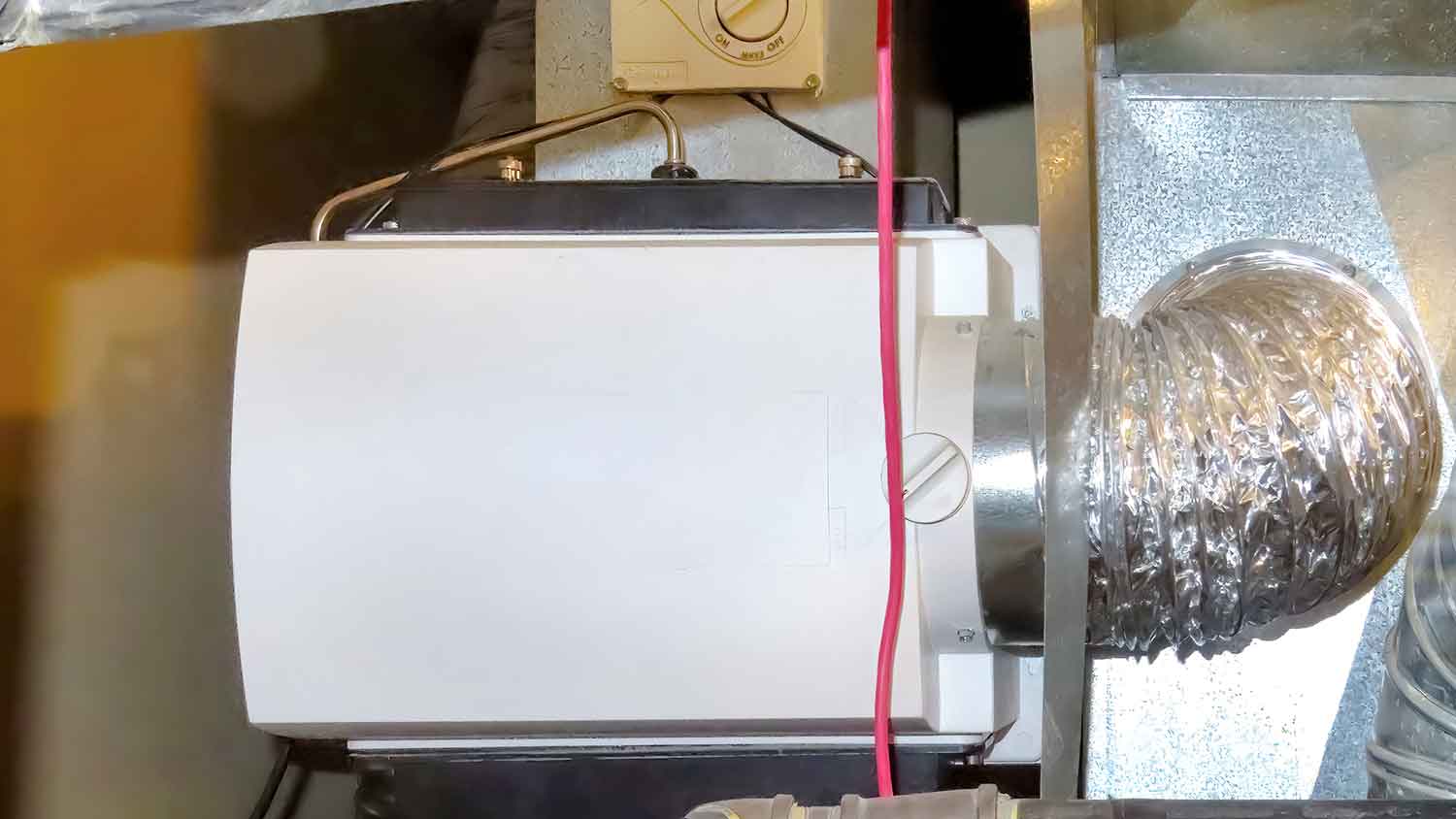
The average boiler installation cost depends on size, system type, and other factors. Keep reading to learn the cost of a new boiler in New York City.
Strange noises in your home can be unsettling


Several reasons can contribute to your home's creaking noises.
Many creaking sounds are easily fixable.
The most common cause of increased creaking is a significant change in the HVAC system.
HVAC repairs cost between $130 and $2,000 on average.
While nearly every home will make strange sounds from time to time due to settling and environmental factors, if you're asking why your house is creaking more than usual lately, it may be time for some further investigation. Here are the most common causes for increased noises.
Outdoor temperature changes cause the material that make up your home expand and contract. The movement can trigger unusual sounds and creaking in floors, walls, and the structure itself. The most common times for this to happen are after a change of seasons or extensive weather pattern changes.
While there's nothing we can do about the weather, if you've noticed an uptick in the amount of creaking your home is doing after a seasonal change, part of the problem could lie within your HVAC system. As the system ages, it can struggle to keep up with demand. Scheduling an HVAC system inspection could identify system issues before they become problems.

Squeaky floors can indicate structural problems. However, the most common reason your floors are creaking more than usual is a change in humidity from indoors, outdoors, or both. Humidity or lack of it can alter the amount of moisture in wooden structures in your home. The change has a similar effect as the expansions and contractions that can happen with temperature changes, in that the physical size of the elements changes and causes creaking.
Managing the humidity in your home is essential. If you've noticed an uptick in the amount of noises your home makes lately, now is a good time to check that your whole-house humidifier is working as it should to help maintain a moisture level in the indoor air between 30% and 40%.
A less common but potentially serious threat to your home can come from simple rainfall. Excessive water or lack of water in the soil surrounding your home's foundation can allow the structure to move slightly. This can cause creaking sounds over time as the connection between the foundation and the rest of the house changes.
While a moving home foundation is a serious threat to a home's overall condition, dealing with precipitation doesn't have to be too difficult in many situations. Rain gutter installation costs between $625 and $1,717 and can eliminate most yard water problems. If you need a more in-depth solution, the average cost to install a yard drainage system is between $2,119 and $7,111.
Perhaps not technically known as creaking, air leaks in your home's HVAC system, ductwork, windows, and around door seals can cause creaking-like sounds. You may hear air movement through poorly sealed windows and doors on particularly windy days, or you could hear duct leaks from your forced-air furnace or AC.
The best way to identify air leaks and other energy-robbing inefficiencies in your HVAC system and throughout your home is by scheduling an energy audit with a qualified energy pro and following through on the recommendations afterward. Doing so not only helps your home's efficiency but can reduce the amount of creaking it does, too.

Animals make all kinds of funny noises. One distinguishable type is when they scratch their paws or claws on metal. From birds in your home's rain gutter system to rodents in the ductwork, these sounds can amplify through the house structure to produce irritating creaking sounds.
If your home's creaking problem is caused by animals, the fix can be as simple as contacting a local pest control company to effectively and humanely deal with whatever has made your home theirs.
If your home is making more creaking noises than usual, it's typically a sign that something has changed recently. Temperature, humidity, critter activity, and water levels can change drastically from one day to the next. While some creaking can indicate bigger problems with the home's structure, the most common reasons are much easier to deal with. A local HVAC repair specialist is the best pro to contact as a first step when you suspect your home is making more noise than usual.
From average costs to expert advice, get all the answers you need to get your job done.

The average boiler installation cost depends on size, system type, and other factors. Keep reading to learn the cost of a new boiler in New York City.

Discover the factors influencing air duct replacement cost in New York City. Learn how to save money and make an informed decision for your home's comfort.

You’ll spend an average of $5,466 on new furnace costs in New York, New York, but your final price depends on a number of factors. Here’s what to expect.

Is your furnace not blowing hot air? Find out 13 common culprits behind a cold furnace, plus tips for how to get the warm air pumping again.

No one likes a cold shower or a frigid winter night. Regular boiler maintenance and repair will ensure your appliance stays in tip-top shape. Keep the hot water flowing year-round with these easy tips.

Is your heat pump not blowing hot air? Several factors could be causing this issue, and we dive into seven of the most common heat pump issues.